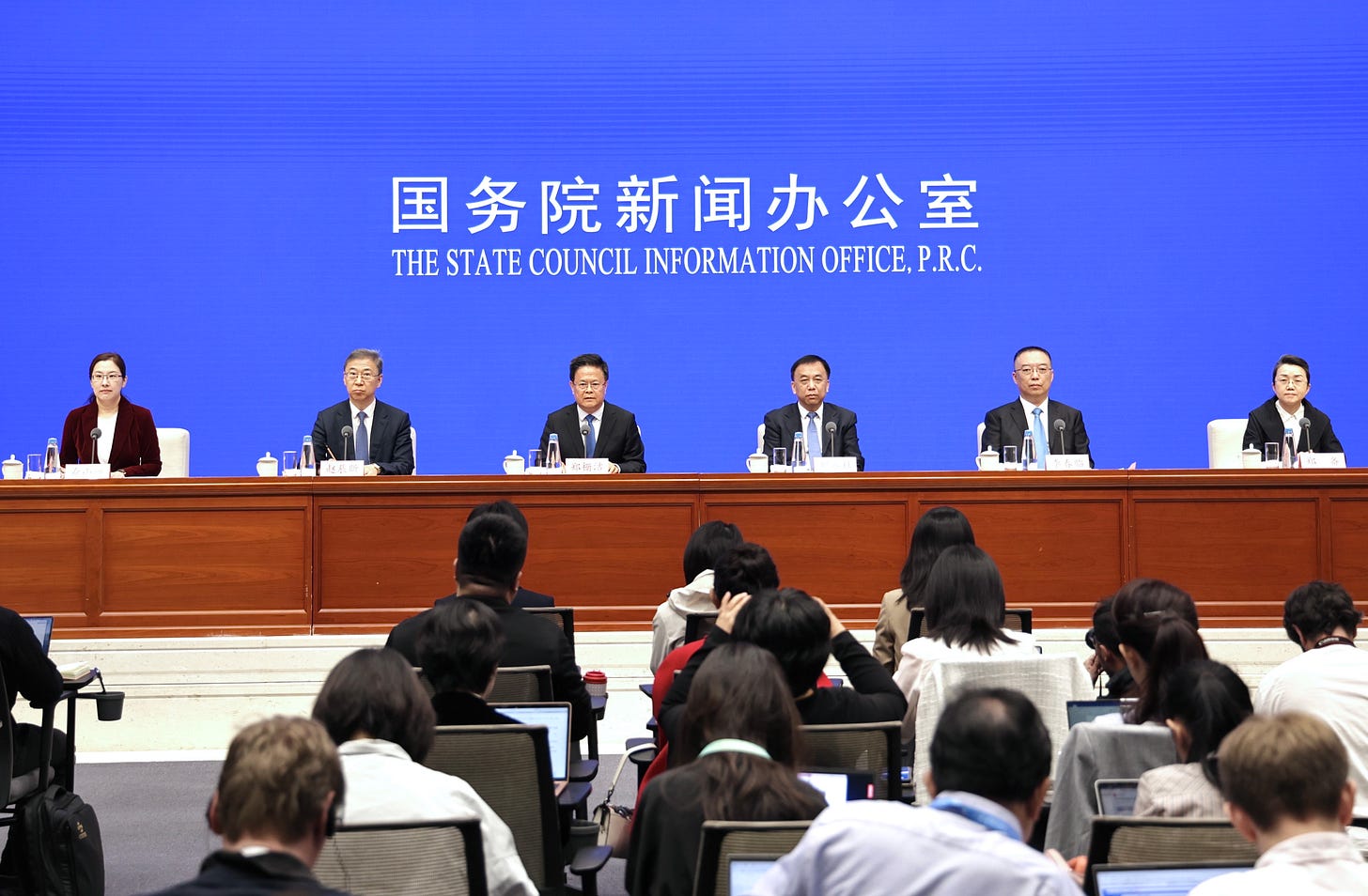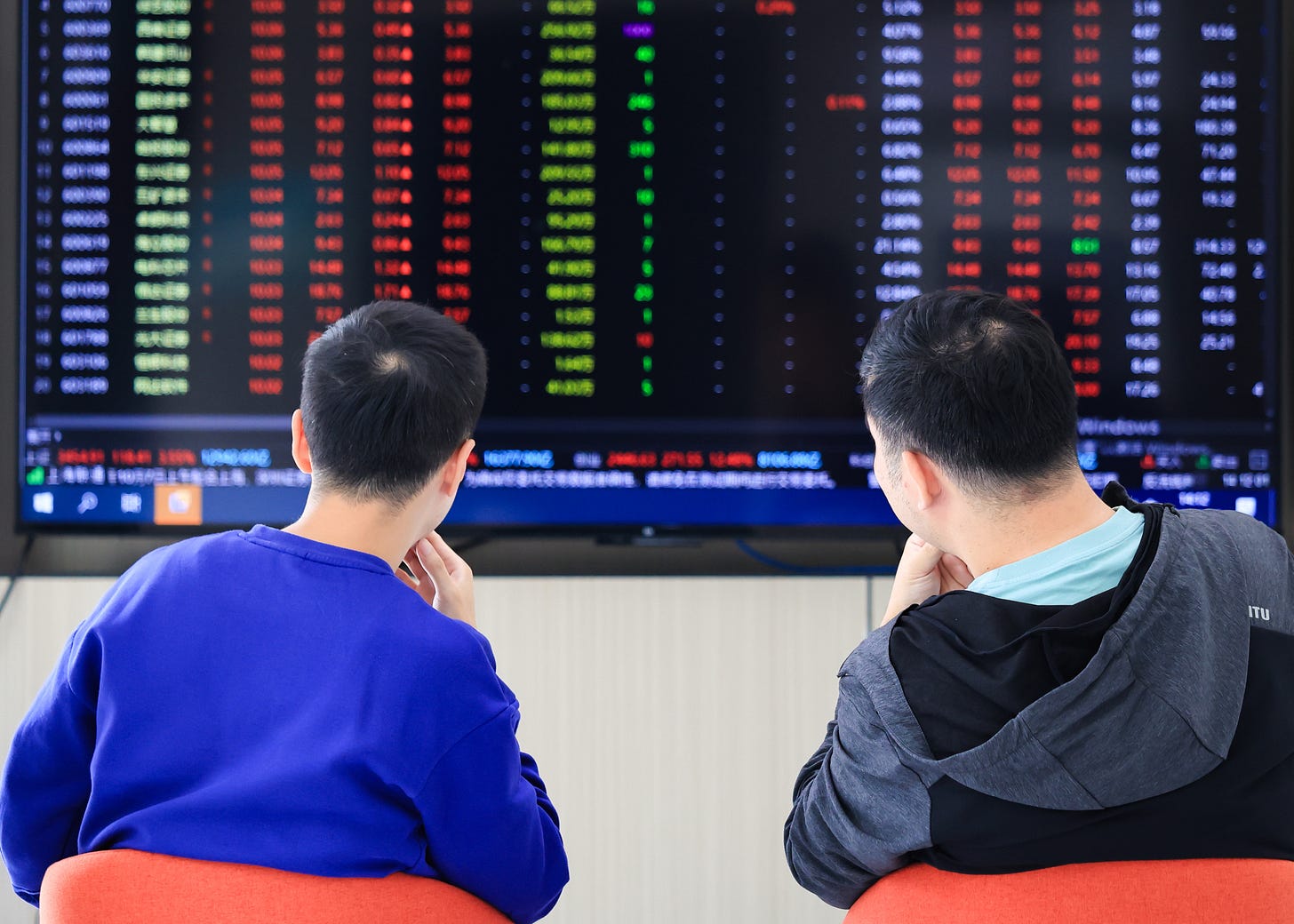Explainer: Decoding China's incremental policies
Confidence doesn't materialize out of thin air. It grows when real problems are solved. The core of the incremental policy packages lies in addressing the pressing challenges that China faces.
Greetings and welcome to the latest edition of PekingEnsight! We're thrilled to have you join us once again as we navigate the ever-evolving landscape of the Chinese economy.
Over the past month, China's macroeconomic management has marked a milestone in its efforts to stabilize and revitalize the economy, with two major meetings held by the CPC Political Bureau and the State Council, three press conferences by financial authorities, the top economic planning agency and the finance ministry, and one significant legal development on private sector promotion.
Dong Yu, executive vice president of the China Institute for Development Planning at Tsinghua University took an in-depth review to present the full picture of the central government's strategy.
Dong previously worked at the National Development and Reform Commission and the Office of the Central Commission for Financial and Economic Affair, and was a key participant in the formulation of China's recent five-year plans.
In this edition, Peking Ensight has distilled the insights of Dong's article to bring clarity to how these incremental policies fit into a larger, problem-solving framework for China's economic management.
It is vital to understand the underlying logic of this comprehensive set of incremental policies (增量政策). Analyzing these policies reveals a clear problem-oriented approach of China's macroeconomic management.
The recent series of policies are specifically designed to address five concern, including insufficient effective demand, uncertain expectations among private enterprises, local government debt, difficulties in the real estate market and challenges in the capital markets, to reinforce confidence across all sectors of the economy.
While these policies may seem to have emerged rapidly in September, the groundwork had been laid much earlier. The first quarter of 2024 showed a promising economic start, but as early as April 30, during a Political Bureau meeting assessing the economic situation, the central government acknowledged that "the economy's sustained recovery still faces many challenges." This foresight highlighted the leadership's preparation for potential fluctuations.
By the mid-year meeting on July 30, the message became clearer: "macroeconomic policies must be more effective." The government also emphasized the need to "prepare a set of incremental policy measures and introduce them at the appropriate time." That is where the word "incremental policy" come from.
Throughout the year, economic departments closely monitored economic activity, gathering data and conducting in-depth analyses to prepare these policies with careful deliberation. The critical choice was timing. The right moment arrived in late September, and once it did, the central leadership swiftly convened meetings to implement the policies without hesitation or delay.
Expanding domestic demand
In multiple meetings, this issue has consistently been highlighted as the primary domestic economic concern. Expanding domestic demand requires simultaneous efforts in both consumption and investment.
According to the press conference of financial authorities , China will cut interest rate cuts and reduce the reserve requirement ratio, freeing up liquidity to the market. On the investment side, when the interest on corporate loans decreases, businesses can allocate more funds to production and expansion. On the consumer side, the reduction in interest rates, especially on existing mortgages, can directly increase disposable income to boost consumption.
The press conference of the National Development and Reform Commission (NDRC), or the country's top economic planning agency, put a a focus on the country's "two new" initiative and "two key" projects (两新两重). The "two new" initiative refers to the large-scale programs for equipment renewal and consumer goods trade-ins, launched earlier this year to stimulate demand. Meanwhile, the "two key" projects are focused on advancing major national strategies and enhancing security capacity in critical areas.
According to NDRC Director Zheng Shanjie, since the launch of the "two new" initiative, passenger car retail sales have surged, and home appliance sales have rebounded from a decline to growth. Moving forward, the government plans to intensify efforts to implement supportive policies to further bolster the initiative and drive consumer spending.
To boost investment, Zheng said China will make full use of this year's funds. The 700 billion yuan in central budget investment and the 1 trillion yuan in ultra-long special treasury bonds have been allocated. Next year, China plans to continue issuing ultra-long special treasury bonds and optimize their allocation to further support "two key" projects. In addition, investment funding worth 200 billion yuan, planned for next year, will be released in advance this year to enable local governments to begin early-stage project implementation..
Improving expectations of private enterprises
One of the essential elements for stabilizing and improving the economy is fostering a favorable development environment and addressing the concerns and anxieties of businesses. Right now, one of the important move is to accelerate the introduction of the law on promoting private sector development.
China unveiled draft law on private sector promotion on October 10. The draft features equal treatment and protection of private sector businesses, including provisions on ensuring private businesses' fair participation and competition in the market, improving the investment and financing environment for these businesses, supporting their technological innovations, and strengthening the protection of their rights and interests.
During the public consultation of the draft law, some feedback questioned why certain "common-sense" provisions were explicitly written into the law. The inclusion of these seemingly obvious elements highlights the fact that in the past, these principles may not have been fully implemented or enforced effectively. By embedding them into law, the government is making them clear.
Defusing local government debts
Finance Minister Lan Fo'an said China will "increase the debt ceiling on a relatively large scale in a lump sum to replace existing hidden debts of local government and help defuse their debt risks, and he referred to it as "the strongest debt alleviation measure introduced in recent years.
It is estimated that the scale of this new round of debt replacement could exceed 2.2 trillion yuan (about 311 billion U.S. dollars). By issuing government bonds with lower interest rates and longer maturities, local governments can replace high-cost, short-term debts. In the process of the debt replacement, the risks will be reduced.
Lan also emphasized that there remains considerable room for China to issue bonds and expand the deficits. The key takeaway is the "considerable room" available. Confidence in the government's ability to manage policy intensity and timing should remain strong.
Propping up real estate market
The recent National Day holiday have shown signs of recovery in the housing market in many areas, which is closely tied to the incremental policies aimed at stopping the decline and stabilizing the property market.
The People's Bank of China announced further reductions to existing mortgage rates. In addition, the distinction between first and second homes was removed, with the minimum down payment rate uniformly set at 15 percent. Following this, many regions adjusted their housing purchase restrictions and launched promotional activities, restoring market confidence
At the Finance Ministry press conference held after the National Day, the minister said the country would apply a set of fiscal policy tools including local government special-purpose bonds, special funds and taxation policies to help stabilize the sector. Local governments will be supported in using special-purpose bonds to reclaim eligible idle land or to expand land reserves if needed.
Supporting capital market
The People's Bank of China revealed new policy tools to facilitate the inflow of capital into the stock market, such as the Securities, Funds and Insurance companies Swap Facility. This tool allows funds obtained through these swaps to be used solely for stock market investments. Additionally, the Political Bureau meeting called for efforts to boost the capital market, vigorously guide medium and long-term funds to enter the capital market, clear the obstacles for social security, insurance, and wealth management funds to invest in the capital market.
There is an important perspective to consider: macroeconomic controls are not solely focused on supporting the stock market itself, but rather on strengthening the underlying fundamentals of the economy.
By Han Qiao










